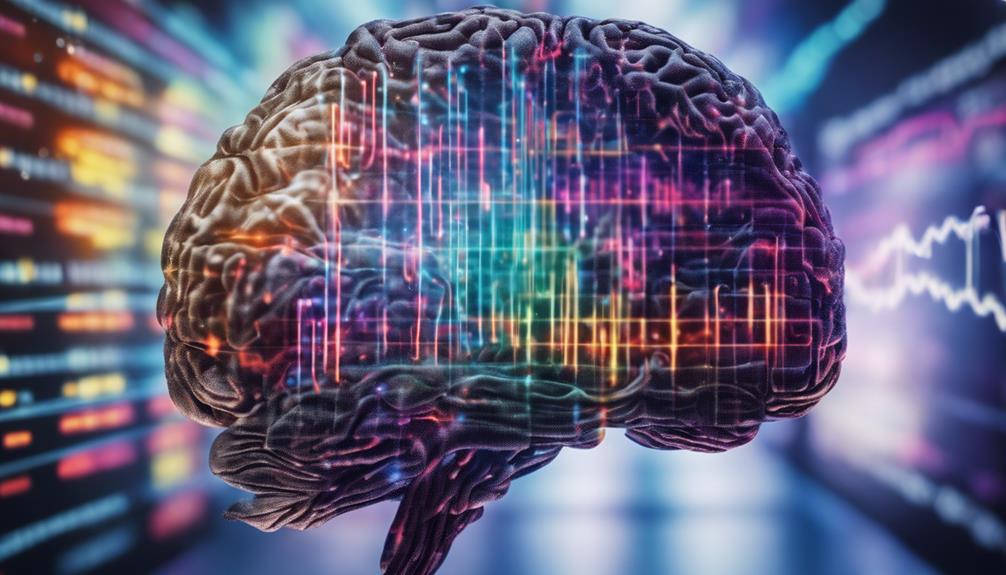Understanding marketing's emotional impact with AI means harnessing cutting-edge technology to detect and analyze consumer emotions. Through facial expressions, vocal tones, and text, I can gain profound insights into customer sentiment. This emotional data allows me to craft highly personalized and engaging marketing campaigns. Emotion AI empowers me to adapt interactions in real-time, fostering deeper connections and enhancing brand loyalty. By interpreting emotional cues, I can make data-driven decisions that resonate more effectively with my audience. Continue exploring to discover how this technology revolutionizes marketing strategies and truly transforms consumer engagement.
Key Takeaways
- Emotion AI detects and analyzes customer emotions to tailor marketing campaigns for stronger emotional impact.
- Real-time analysis of emotional responses helps refine marketing strategies and enhance customer engagement.
- Personalized marketing campaigns, driven by emotional data, increase engagement and conversion rates.
- Emotion AI transforms raw emotional data into actionable insights, fostering brand loyalty and resonance.
- Measuring emotional responses through advanced algorithms enables precise adjustments to marketing content.
The Role of Emotion AI
Emotion AI, by leveraging advanced algorithms to decipher human emotions, is revolutionizing how marketers understand and engage with consumers.
Emotion AI provides a unique application in marketing, utilizing affective computing to analyze facial expressions, vocal tones, and text for emotion detection. With tools like Affectiva and Emotibot, it captures emotional data that reflects genuine consumer reactions.
This artificial intelligence taps into emotional intelligence, empowering companies to tailor responses and enhance customer engagement. By integrating Emotion AI, marketers can craft personalized experiences that resonate on a deeper level, strengthening brand-consumer relationships.
Emotion AI isn't just a technological advancement; it's an essential strategy for modern marketing, enabling a nuanced understanding of consumer emotions for impactful campaigns.
Analyzing Customer Sentiment
By analyzing customer sentiment, we can uncover the emotional underpinnings that drive consumer behavior and refine our marketing strategies accordingly. Emotion AI interprets emotional responses by examining facial expressions, vocal tones, and text. This technology captures emotional cues, giving us a window into consumer sentiment.
With these insights, we can tailor advertising content to create more resonant advertisements. Consider the benefits:
- Enhanced Emotional Impact: Tailor marketing campaigns to evoke stronger emotional responses.
- Improved Engagement: Adapt customer experiences based on real-time emotional feedback.
- Refined Content: Fine-tune ads for greater resonance and relevance.
- Data-Driven Decisions: Leverage Emotion AI for a deeper understanding of consumer sentiment.
Personalizing Marketing Campaigns

Building on our understanding of customer sentiment, we can harness AI to personalize marketing campaigns, creating messages that resonate on a deeply individual level.
By analyzing emotional data from customer interactions, AI in marketing tailors content to match consumer preferences and behaviors. This emotional intelligence leads to personalized campaigns that drive higher engagement and conversion rates.
Data-driven decisions amplify emotional impact, fostering customer satisfaction and brand loyalty. Personalized marketing not only strengthens customer relationships but also guarantees efficient resource use and higher ROI.
Through AI-driven personalization, we can create compelling, individualized experiences that captivate consumers and solidify our brand's presence in their lives.
Enhancing Customer Engagement
How can we harness the power of AI to elevate customer engagement to unprecedented levels?
The answer lies in Emotion AI. By leveraging this technology, we can analyze emotional responses and tailor personalized experiences that resonate deeply with our audience.
Here's how:
- Craft Resonant Marketing Campaigns: Understand customer sentiments to create emotionally engaging advertisements.
- Drive Brand Loyalty: Foster deeper connections by tapping into emotional responses, enhancing brand perception.
- Implement Effective Communication Strategies: Adapt in real-time to customer emotions, ensuring messages hit the mark.
- Boost Customer Engagement: Use insights from Emotion AI to continually refine and personalize interactions.
Measuring Emotional Responses

Emotion AI tools measure emotional responses with remarkable precision by analyzing facial expressions, vocal tones, and body language. Advanced algorithms dissect these data points to interpret emotional states accurately, offering invaluable insights for marketers.
Tools like Affectiva and Kairos excel at capturing and analyzing consumer sentiments in real-time. This intelligence allows businesses to tailor marketing strategies effectively by understanding audience emotions on a deeper level.
Emotion AI is a game-changer, transforming raw data into actionable insights that drive engagement and loyalty. By leveraging this technology, I can precisely gauge emotional responses, ensuring that marketing campaigns resonate emotionally and yield better results.
It's clear: Emotion AI is revolutionizing how we connect with our audience.
Frequently Asked Questions
What Is the Impact of AI in Marketing?
AI revolutionizes marketing by using predictive analytics, customer segmentation, personalized offers, and sentiment analysis. It enables real-time decisions, enhances chatbot interactions, provides behavioral insights, automates campaigns, optimizes content, and boosts market research efficiency.
How Does AI Affect Emotions?
AI acts like an emotional compass, guiding marketers through sentiment analysis and emotion detection. With facial recognition and conversational AI, it enhances customer personalization, leveraging mood recognition and affective computing for AI-driven empathy and machine learning-driven emotional triggers.
How Is Emotional Intelligence Used in Marketing?
I use emotional intelligence in marketing to analyze consumer behavior, identify emotional triggers, and perform sentiment analysis. This approach builds trust, enhances emotional branding, and fosters customer empathy, ultimately driving psychological influence, emotional resonance, and brand loyalty.
What Job Task in Marketing AI Will Have the Most Impact?
In my view, predictive analytics will have the most impact on marketing AI. By leveraging customer segmentation, sentiment analysis, trend analysis, and lead scoring, we can optimize campaigns, personalize content, and enhance ad targeting for superior market research and social listening.
Conclusion
To sum it up, leveraging Emotion AI in marketing isn't just a game-changer—it's the secret sauce for deeper customer connections.
By analyzing sentiment, personalizing campaigns, and measuring emotional responses, we've got the tools to truly engage.
Imagine the possibilities: campaigns that don't just speak to the mind but also touch the heart.
Let's embrace this emotional intelligence, turning data into genuine, impactful experiences.
It's time to make marketing more human.






